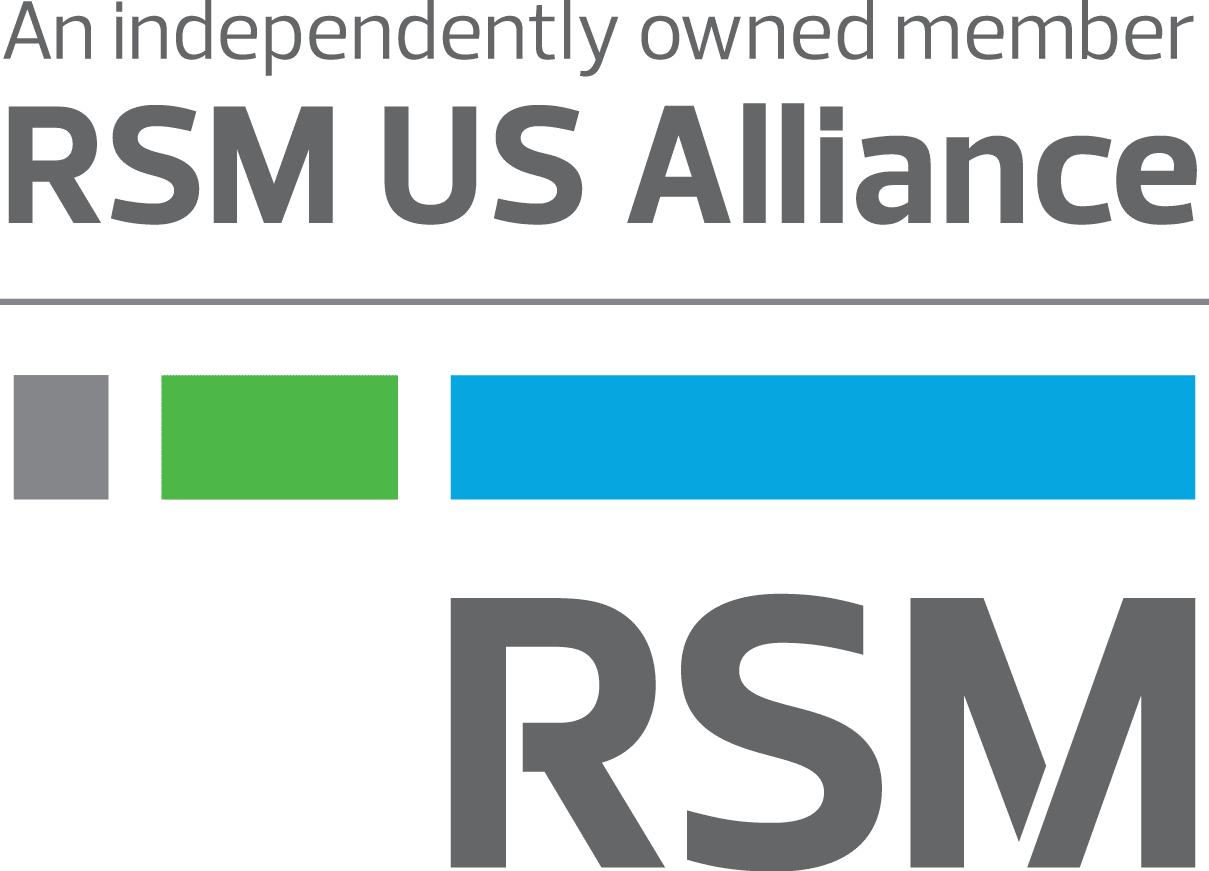Navigating the stock repurchase excise tax
ARTICLE | April 12, 2024
Authored by RSM US LLP
Executive summary: IRS and Treasury’s proposed regulations on stock repurchase excise tax
The IRS and the Department of the Treasury have released proposed regulations REG-118499-23 on April 9th, 2024, providing clarity on certain filing aspects of the stock repurchase excise tax. These regulations, originating from section 4501 of the Inflation Reduction Act of 2022, aim to establish a comprehensive framework for the administration of the excise tax on corporate stock repurchases.
The proposed regulations offer guidance on filing and reporting requirements, recordkeeping requirements and penalties for noncompliance. They serve as an interim measure to guide taxpayers and practitioners on how to comply with the procedure and administrative requirements of the excise tax until final regulations are issued.
Introduction
In a significant move to provide clarity on the stock repurchase excise tax, the IRS and the Department of the Treasury have released highly anticipated proposed regulations. The IRS and Treasury are working to establish a comprehensive framework for the administration of the excise tax on the repurchase of corporate stock. This initiative is currently encapsulated in the Proposed Regulations REG-118499-23 (Procedure and Administration)1, released on April 9, 2024.
These newly released proposed regulations provide guidance and clarity on filing and reporting requirements, recordkeeping requirements, and penalties for noncompliance. The purpose of this article is to highlight the procedural aspects of these proposed regulations, shedding light on what corporations can expect in terms of compliance and administration.
Background
Previous Guidance
Prior to the proposed regulations, the IRS provided guidance through Notice 2023-2. The notice aimed to provide taxpayers with interim guidance until the publication of the newly released proposed regulations. Taxpayers were allowed to rely on the rules described in the notice until the issuance of these proposed regulations.
Purpose of the Proposed Regulations
In the context of REG-118499-23, these proposed regulations serve as an interim measure to guide taxpayers and practitioners on how to comply with the procedure and administrative requirements of the excise tax until final regulations are issued. Note however, that while proposed regulations do not have the force and effect of law immediately upon publication, taxpayers may rely upon them until final regulations are promulgated.
Key Procedural Aspects
1. Filing Requirements: The proposed regulations stipulate that any covered corporation, or any entity treated as such, engaging in stock repurchase activities after Dec. 31, 2022, must file a ‘stock repurchase excise tax return’. The proposed regulations confirm that the ‘stock repurchase excise tax return’ means the Form 720, Quarterly Federal Excise Tax Return, accompanied by Form 7208, Excise Tax on Repurchase of Corporate Stock.
- Notably, any covered corporation that makes a repurchase must comply with these reporting requirements, even if every repurchase is eligible for a statutory exception or is offset by issuances.
- Timing – For a covered corporation (or an entity treated as such) with a taxable year ending after Dec. 31, 2022, and before the date final regulations are published, the stock repurchase excise tax return is filed by the due date of the Form 720. This due date is the first full calendar quarter following the publication of the final regulations.
- For example, if a covered corporation had a taxable year ending Dec. 31, 2023, and the date of publication of final regulations were Sep. 16, 2024, the stock repurchase excise tax return for the 2023 taxable year would be filed by Jan. 31, 2025 (the due date of the Form 720 for the calendar quarter ending Dec. 31, 2024).
- After promulgation of the final regulations, the stock repurchase excise tax return would be filed by the due date of the Form 720 for the first full calendar quarter after the taxable year of the covered corporation ends.
- For example, a covered corporation with a taxable year ending Dec. 31, 2024, and if the date of publication of final regulations were Sep. 16, 2024, the stock repurchase excise tax return for its 2024 taxable year would be filed by April 30, 2025 (the due date of the Form 720 for the calendar quarter ending March 31, 2025).
2. Recordkeeping: Corporations subject to the tax are required to maintain comprehensive and detailed records sufficient to accurately establish the amount of repurchases, adjustments, or exceptions (e.g., documentation of repurchases, issuances, options exercise, etc.) These records must be readily available for IRS inspection and retained as long as they may become material in the administration of any internal revenue law.
3. Payment Deadlines: The excise tax must be paid once per taxable year on the Form 720 due for the first full quarter after the close of the taxpayer’s taxable year. The deadline for payment coincides with the filing deadline.
4. Penalties and Compliance: The proposed regulations also outline penalties for non-compliance, including failure to file, failure to pay and understatement of liability. Tax return preparers are also subject to specific requirements and penalties under these regulations.
Conclusion
Corporations should quickly adapt to these new requirements by ensuring robust recordkeeping practices and timely compliance with filing and payment obligations, beginning with any repurchases after Dec. 31, 2022. The framework of the proposed regulations underscores the importance of understanding the nuances of the excise tax and its implications for corporate financial strategies. As the rulemaking process progresses, stakeholders are encouraged to discuss with their tax advisors and engage in the public comment period.
Please note that the information provided in this article is intended for general guidance and informational purposes only. Tax laws and regulations are complex and subject to change, and the application of such laws and regulations can vary widely based on the specific facts and circumstances involved. Therefore, we strongly advise consulting with a qualified tax professional or legal advisor.
[1] Also released on April 9, 2024, was the Proposed Regulations REG-115710-22, which provide technical guidance on application of the excise tax. The technical mechanics of the excise tax as addressed in this proposed regulation is beyond the scope of this article but will be the subject of additional guidance.
This article was written by Patrick Phillips, Nate Meyers and originally appeared on 2024-04-12.
2022 RSM US LLP. All rights reserved.
https://rsmus.com/insights/financial-reporting/navigating-the-stock-repurchase-excise-tax.html
The information contained herein is general in nature and based on authorities that are subject to change. RSM US LLP guarantees neither the accuracy nor completeness of any information and is not responsible for any errors or omissions, or for results obtained by others as a result of reliance upon such information. RSM US LLP assumes no obligation to inform the reader of any changes in tax laws or other factors that could affect information contained herein. This publication does not, and is not intended to, provide legal, tax or accounting advice, and readers should consult their tax advisors concerning the application of tax laws to their particular situations. This analysis is not tax advice and is not intended or written to be used, and cannot be used, for purposes of avoiding tax penalties that may be imposed on any taxpayer.
RSM US Alliance provides its members with access to resources of RSM US LLP. RSM US Alliance member firms are separate and independent businesses and legal entities that are responsible for their own acts and omissions, and each are separate and independent from RSM US LLP. RSM US LLP is the U.S. member firm of RSM International, a global network of independent audit, tax, and consulting firms. Members of RSM US Alliance have access to RSM International resources through RSM US LLP but are not member firms of RSM International. Visit rsmus.com/aboutus for more information regarding RSM US LLP and RSM International. The RSM(tm) brandmark is used under license by RSM US LLP. RSM US Alliance products and services are proprietary to RSM US LLP.
LGA, LLP is a proud member of RSM US Alliance, a premier affiliation of independent accounting and consulting firms in the United States. RSM US Alliance provides our firm with access to resources of RSM US LLP, the leading provider of audit, tax and consulting services focused on the middle market. RSM US LLP is a licensed CPA firm and the U.S. member of RSM International, a global network of independent audit, tax and consulting firms with more than 43,000 people in over 120 countries.
Our membership in RSM US Alliance has elevated our capabilities in the marketplace, helping to differentiate our firm from the competition while allowing us to maintain our independence and entrepreneurial culture. We have access to a valuable peer network of like-sized firms as well as a broad range of tools, expertise, and technical resources.
For more information on how LGA, LLP can assist you, please call us at (781) 569-4700.


